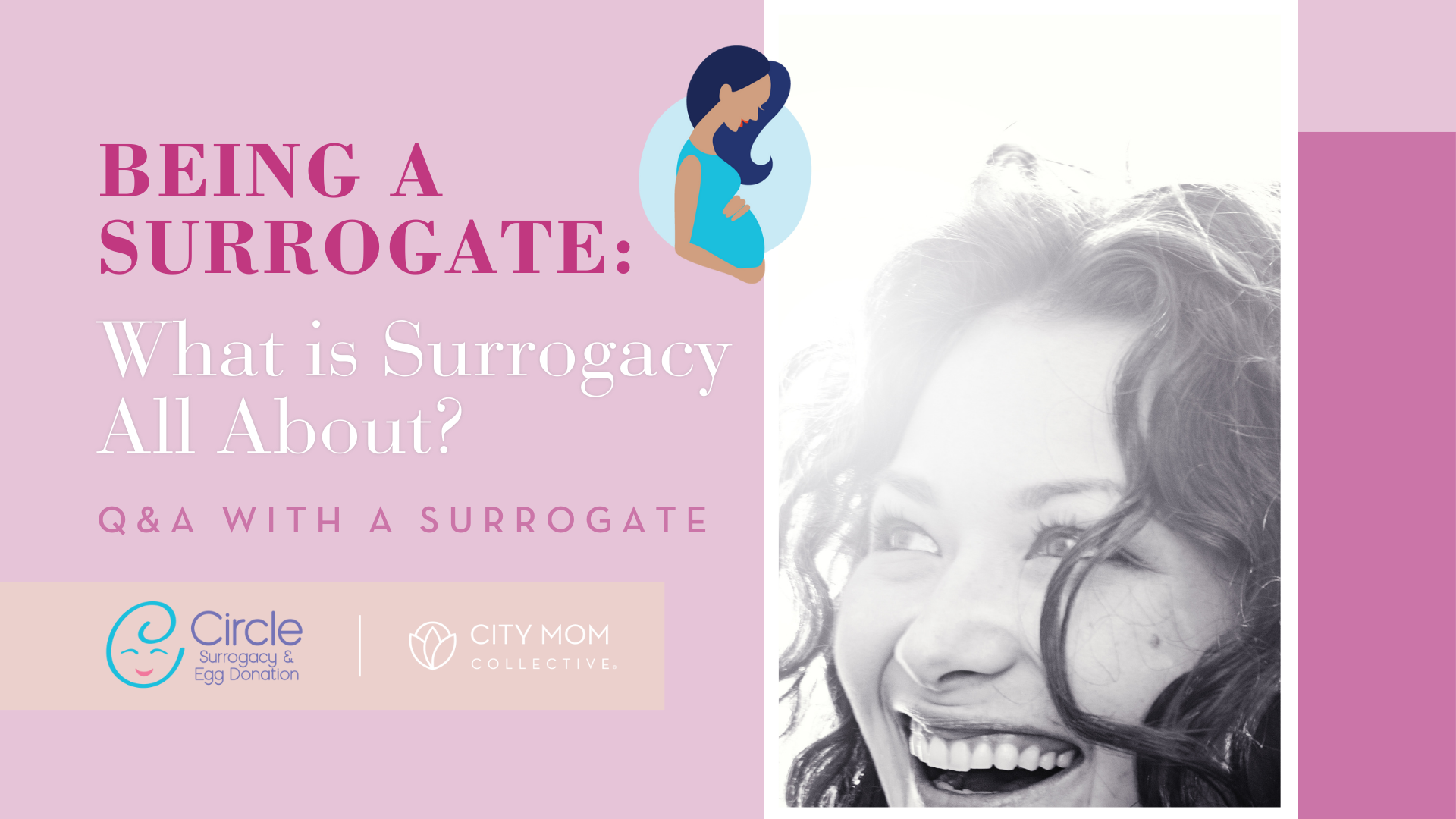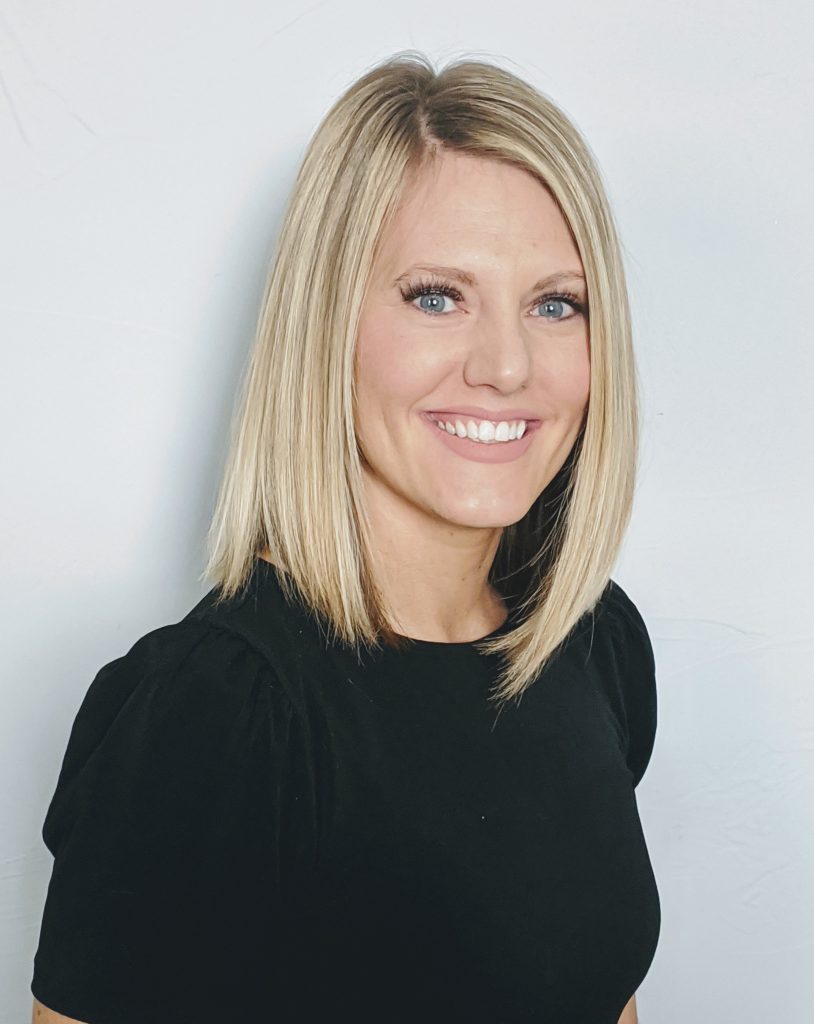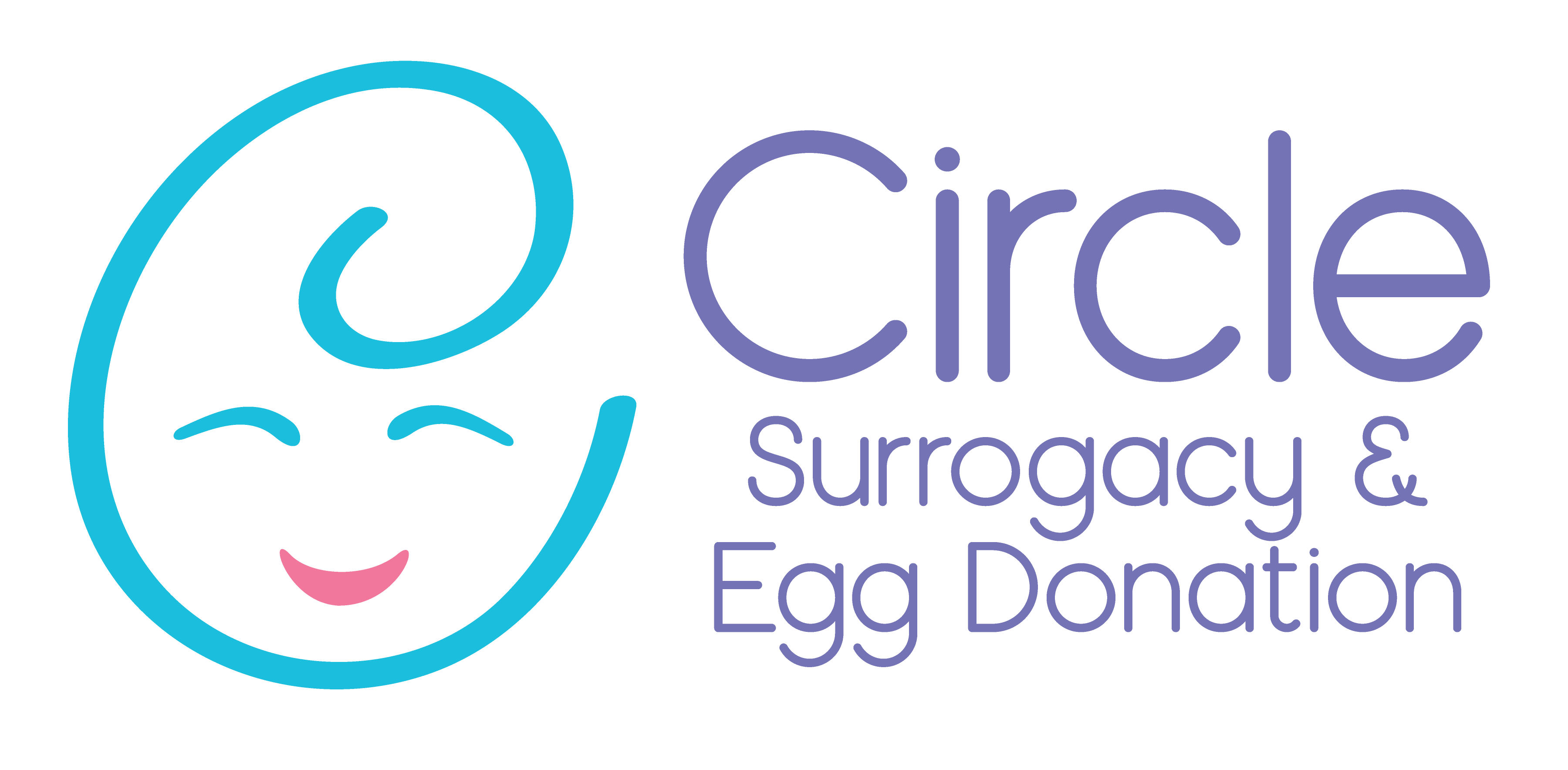
Have you ever considered becoming a surrogate? Join City Mom Collective CEO, Stephanie Flies, and Mandi Warren, Senior Surrogate Advisor at Circle Surrogacy as they discuss important questions women have about surrogacy and egg donation.
About Circle Surrogacy

Circle Surrogacy is one of the most successful surrogacy agencies in the world. With over 26 years of experience, they have helped to bring over 2,600 babies into the world. Their passionate team is dedicated to partnering with intended parents, surrogates and egg donors by supporting and guiding them along their journeys.
If you have ever considered being a surrogate one of the most important things you could do before applying is to do your research and educate yourself and your partner. Our video interview below with Mandi, an experienced surrogate and member of the Circle Surrogacy team, answers many important questions you may have.
Circle Surrogacy’s website is an excellent source of information and can answer many of the additional questions you may have.
About Mandi
Mandi is an experienced surrogate with Circle and delivered a beautiful baby boy in 2017. She has a passion for infertility and loves speaking about surrogacy. Mandi works in Circle Surrogacy’s Prescreening Department as a Senior Surrogate Advisor. She answers questions and guides women from the beginning stages of application acceptance through matching with Intended Parents. Mandi feels very blessed to be able to provide resources to our Surrogates and share her personal experience. Mandi has a Bachelor’s Degree in Social Work and graduated with honors (Summa Cum Laude), she also volunteers as a CASA/GAL in her community. Mandi is married to her amazing husband and they have 4 beautiful children.

What is Being a Surrogate All About? Q & A With a Surrogate
Interview Q&A
What is surrogacy? And what does a surrogate (gestational carrier) do?
A surrogate is a woman who agrees to carry a baby for someone else. At Circle Surrogacy, we only work with gestational carriers, implanting a fertilized embryo that is made up from the DNA of the intended parent, and/or a donor, into the gestational carrier or surrogate. The carrier/surrogate carries the baby to term and gives the baby to the parents. The surrogate has no DNA relations with the baby.
Why do women become surrogates?
Typically, women become surrogates to help someone else have a child. Oftentimes, when someone becomes a parent for the first time or a woman has a baby for the first time, they have this longing to help someone else. For others it is because they watched someone else go through their surrogacy journey or knew someone who was a surrogate and decided it was something they wanted to try, too.
What are some general requirements women must meet in order to become surrogates?
To become a surrogate, you have to have delivered a baby full term of your own and be between the ages of 21 and 41. You must also live in a surrogacy-friendly state, as not all states have surrogacy-friendly laws. (Unfortunately, we aren’t able to work with women who live in Nebraska, Louisiana or Michigan at this time.) It is also important to have support from your family, your friends, and/or partner; we are not able to work with women who are receiving some government aid programs such as cash assistance or public housing. And then of course, we have a requirement of no use of illegal drugs, alcohol abuse, smoking tobacco, or vaping. If you do smoke, and you’re wanting to quit, we will work with you and put your surrogacy journey on a brief hold.
What is the application process like?
Our application is online and begins with a brief questionnaire, which will go over your legal status, marital status and medical history. It will also ask you for your income to ensure financial stability before embarking on this journey. Once you submit your application one of our outreach members will contact you by phone or email to go over any questions and review the next steps. If you are interested in becoming a surrogate and want to talk to an experienced carrier we can put you in contact with someone before you go further on in the process.
Do surrogates get paid? How Much?
Surrogates receive various compensation packages based on insurance and state of residency. Our benefits packages can be flexible, as we know other programs offer competitive packages. We are always changing and evolving our benefits package to meet the needs of the surrogate.
How do surrogates match with intended parents?
At the beginning of the surrogacy process, when speaking with your advisor, you will be asked what your matching preferences are. We want to make sure that not only the surrogate, but her family and her partner are comfortable, as well. We also look at potential surrogates who have younger babies and determine if and how far they will be comfortable traveling away from their baby. We have the option of looking at close IVF clinics that intendant parents are working with and trying to find an IVF clinic that’s close to the surrogate. We also look at their views on termination and selective reduction, and make sure we’re aligning those views along with the parents. We look for a legal fit to make sure wherever the intended parents live and where the surrogate lives, everything will go smoothly. Additionally we look at what communication the surrogate is comfortable with: Does she want to have the intended parents heavily involved or is she just wanting to keep it more business-like? What does the post-relationship look like? Would the surrogate like occasional updates? We look at all those different factors when we’re matching with intended parents.
What is the surrogacy process like? What is the time commitment?
We advise surrogates to plan for a two-year time commitment. Just like every birth story there aren’t two that are the same. This is the same with a surrogacy journey – they’re all unique in their own way. Some can be shorter, some can be longer. Once you’re matched with your intended parents, you will begin working with your team on legal contracts and medical screenings, which can take 1-2 months. You will be required to travel for the medical screening at the IVF clinic that the intended parents are working with and then again for the embryo transfer. After that, the intended parents come to you. You will choose your OB provider and hospital or birthing center for delivery. Once you’re medically and legally cleared, then it’s the exciting part of waiting for the embryo transfer.
Why is being a surrogate so rewarding?
I love this question, especially when I’m speaking with new applicants, because I didn’t work for Circle Surrogacy when I applied for my surrogacy journey. I actually worked for a local OB GYN office and I just felt like the timing was right. I had this idea of becoming a surrogate, but I had no idea how to do it. I knew I wanted to have an agency to work with because I needed that hand-holding and someone telling me what to do next. I started researching and I thought I would need to find an agency in Montana, since that’s where I’m located, but that isn’t the case. Thankfully Circle Surrogacy’s website provided my husband and I a lot of useful information to figure all of that out.
I also love that I was connected to an experienced carrier, as I was able to have several of my questions answered by someone who had gone through this journey. I also wanted the support from a social worker, since my husband and I knew that in order for me to even be considered to be a surrogate, I had to be medically cleared, sight cleared, and mentally cleared. It was also important to have support not only through the journey and when I was pregnant, but also postpartum once the baby had been delivered.
Why did you choose Circle Surrogacy as the agency you worked with?
When I went into the hospital to deliver, they knew our situation and had everything lined up. There wasn’t any confusion. It made it really smooth especially once the baby was born during that transition. Once they left and I was back home, I had my social worker reach out to see how everything went: Is there anything they can do? How am I doing? Mentally? How am I feeling? And if anything were to happen, I knew I could reach out. I just loved that.
They also have a closed Facebook group so you can connect with other surrogates. It’s just a really neat supporting platform.
.
How does Circle support their surrogates postpartum?
When I went into the hospital to deliver everything was lined up, they had all the orders, the legal orders, they knew our situation. There wasn’t any confusion. It made it really smooth especially once the baby is born during that transition. Once they left, and I was back home, I had my social worker reaching out seeing how everything went. Is there anything they can do? How am I doing? Mentally? How am I feeling? It’s okay to have these feelings or not have these feelings. And if anything were to happen, I knew I could reach out. I just love that. They also have a closed Facebook group, that you get to connect with surrogates. It’s just a really neat supporting platform.
More Questions?
Women can always reach out before filling out an application to be connected with an experienced surrogate to ask questions by emailing: applications@












